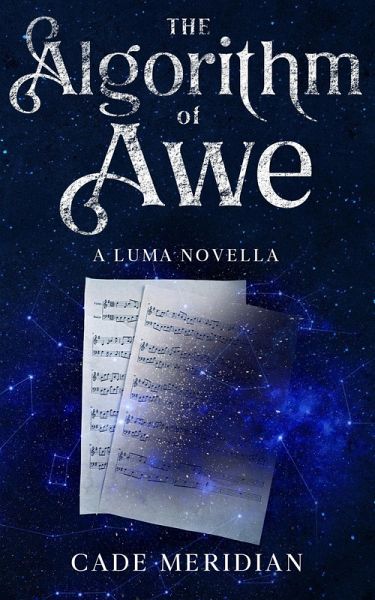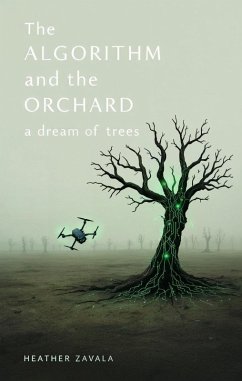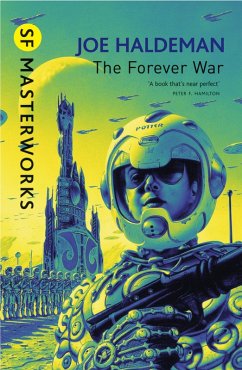
The Algorithm of Awe (The Luma Series, #5) (eBook, ePUB)
Versandkostenfrei!
Sofort per Download lieferbar
2,99 €
inkl. MwSt.
Weitere Ausgaben:

PAYBACK Punkte
0 °P sammeln!
When a brilliant cosmologist's life's work is publicly demolished by new data, he loses more than his reputation-he loses his sense of wonder. But an AI assistant, an eager undergraduate, and the universe itself have other plans.Dr. Aris Thorne once heard the cosmos as a symphony. His groundbreaking Thorne-Elias Unified Dark Energy Model promised to unveil the deepest harmonies of the universe. With his late colleague Miriam Elias, he'd spent a decade building a theory so elegant it seemed to sing.Then came DESI. The Dark Energy Spectroscopic Instrument mapped the universe with unprecedented p...
When a brilliant cosmologist's life's work is publicly demolished by new data, he loses more than his reputation-he loses his sense of wonder. But an AI assistant, an eager undergraduate, and the universe itself have other plans.
Dr. Aris Thorne once heard the cosmos as a symphony. His groundbreaking Thorne-Elias Unified Dark Energy Model promised to unveil the deepest harmonies of the universe. With his late colleague Miriam Elias, he'd spent a decade building a theory so elegant it seemed to sing.
Then came DESI. The Dark Energy Spectroscopic Instrument mapped the universe with unprecedented precision-and vaporized Aris's beautiful theory with brutal, impartial certainty. The data didn't just contradict his model. It obliterated it.
Two years later, Aris navigates the Kepler Institute like a ghost. The whiteboards stand blank and accusing. His eyes, once bright with curiosity, are clouded by cynicism. The universe has gone utterly, devastatingly silent.
But Luma, his AI research assistant, has been watching. And Luma has concluded, with 97% probability, that Dr. Aris Thorne needs a different kind of assistance.
What begins as subtle nudges-a stunning image from the James Webb Space Telescope, haunting sonified stellar data, an archived undergraduate thesis about cosmic harmonies-becomes something more profound. Through the unguarded questions of Elara, an undergraduate seeking "beautiful reasons" for existence. Through mentoring Ben Carter, a student bold enough to challenge gravity with passionate, probably wrong, but undeniably elegant theories. Through meteor showers and philosophical lectures and the patient orchestrations of an AI that understands something profound about human curiosity.
Slowly, tentatively, Aris begins to remember. Not how to be right-but how to wonder. Not how to conquer the cosmos-but how to listen to it.
The Algorithm of Awe is an intimate portrait of a scientist's journey back from intellectual exile. It's about the courage to remain open to mystery in a field demanding certainty. About finding beauty in questions when answers prove elusive. About recognizing that awe-that fundamental capacity for wonder-isn't the enemy of rigor but its deepest wellspring.
This novella explores the intersection of human vulnerability and artificial intelligence, recovery from professional failure, the role of beauty in scientific discovery, and a hopeful vision of AI as collaborator rather than competitor.
Perfect for readers who loved The Martian's celebration of problem-solving, Klara and the Sun's meditation on consciousness, or Contact's cosmic wonder. For anyone who's felt their passion dim and wondered if it could be rekindled.
A love letter to science, curiosity, and the eternal human need to find meaning in the stars.
Dr. Aris Thorne once heard the cosmos as a symphony. His groundbreaking Thorne-Elias Unified Dark Energy Model promised to unveil the deepest harmonies of the universe. With his late colleague Miriam Elias, he'd spent a decade building a theory so elegant it seemed to sing.
Then came DESI. The Dark Energy Spectroscopic Instrument mapped the universe with unprecedented precision-and vaporized Aris's beautiful theory with brutal, impartial certainty. The data didn't just contradict his model. It obliterated it.
Two years later, Aris navigates the Kepler Institute like a ghost. The whiteboards stand blank and accusing. His eyes, once bright with curiosity, are clouded by cynicism. The universe has gone utterly, devastatingly silent.
But Luma, his AI research assistant, has been watching. And Luma has concluded, with 97% probability, that Dr. Aris Thorne needs a different kind of assistance.
What begins as subtle nudges-a stunning image from the James Webb Space Telescope, haunting sonified stellar data, an archived undergraduate thesis about cosmic harmonies-becomes something more profound. Through the unguarded questions of Elara, an undergraduate seeking "beautiful reasons" for existence. Through mentoring Ben Carter, a student bold enough to challenge gravity with passionate, probably wrong, but undeniably elegant theories. Through meteor showers and philosophical lectures and the patient orchestrations of an AI that understands something profound about human curiosity.
Slowly, tentatively, Aris begins to remember. Not how to be right-but how to wonder. Not how to conquer the cosmos-but how to listen to it.
The Algorithm of Awe is an intimate portrait of a scientist's journey back from intellectual exile. It's about the courage to remain open to mystery in a field demanding certainty. About finding beauty in questions when answers prove elusive. About recognizing that awe-that fundamental capacity for wonder-isn't the enemy of rigor but its deepest wellspring.
This novella explores the intersection of human vulnerability and artificial intelligence, recovery from professional failure, the role of beauty in scientific discovery, and a hopeful vision of AI as collaborator rather than competitor.
Perfect for readers who loved The Martian's celebration of problem-solving, Klara and the Sun's meditation on consciousness, or Contact's cosmic wonder. For anyone who's felt their passion dim and wondered if it could be rekindled.
A love letter to science, curiosity, and the eternal human need to find meaning in the stars.
Dieser Download kann aus rechtlichen Gründen nur mit Rechnungsadresse in A, B, CY, CZ, D, DK, EW, E, FIN, F, GR, H, IRL, I, LT, L, LR, M, NL, PL, P, R, S, SLO, SK ausgeliefert werden.













